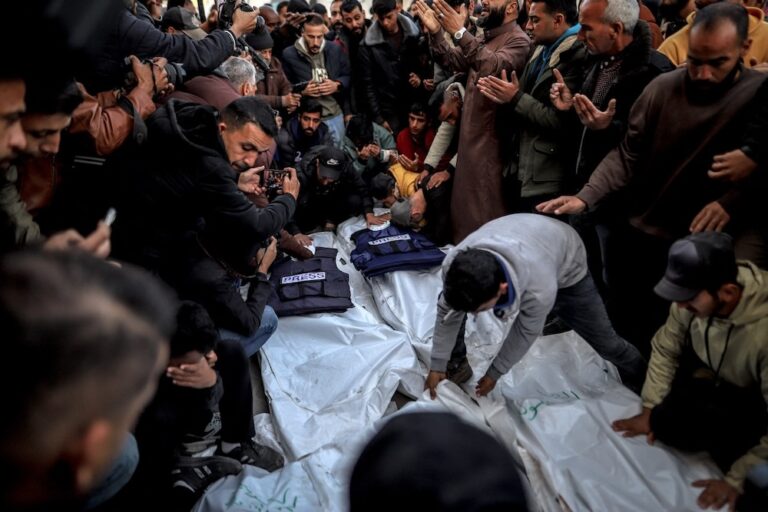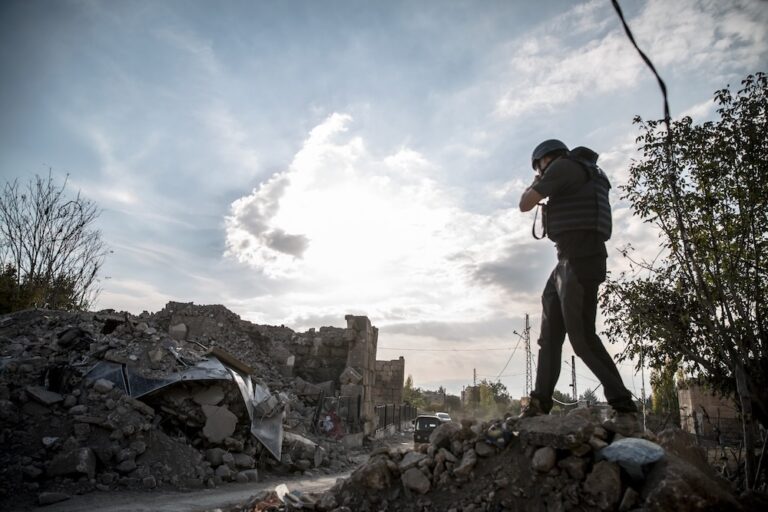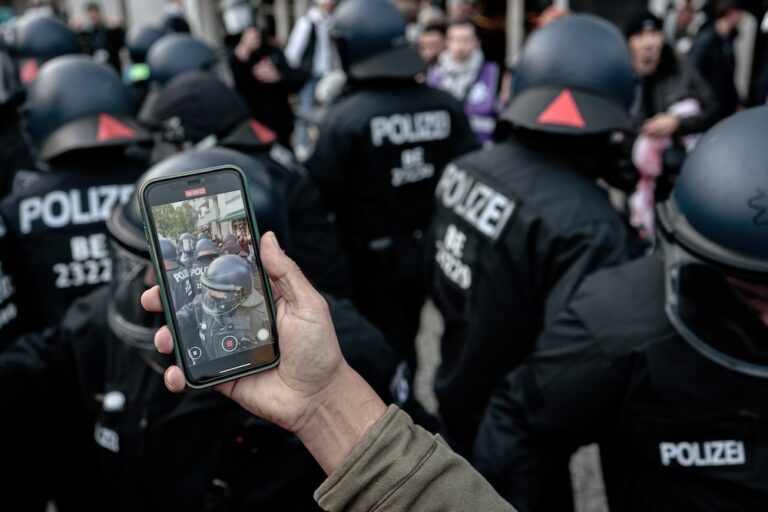(CPJ/IFEX) – In a letter sent Monday, 4 May, to the president of Israel’s Supreme Court, the Committee to Protect Journalists (CPJ) has protested Israel’s continued travel restrictions on Palestinian journalist Taher Shriteh. The Gaza-based freelance journalist has been denied permission by Israeli authorities to travel to Jerusalem and the West Bank to carry out […]
(CPJ/IFEX) – In a letter sent Monday, 4 May, to the president of Israel’s
Supreme Court, the Committee to Protect Journalists (CPJ) has protested
Israel’s continued travel restrictions on Palestinian journalist Taher
Shriteh. The Gaza-based freelance journalist has been denied permission by
Israeli authorities to travel to Jerusalem and the West Bank to carry out
his work as a journalist since 1995. The apparent reason for the ban is his
coverage of the activities of the Islamic Resistance Movement (Hamas) in
Gaza. Shriteh, a veteran reporter working for “The New York Times”, CBS,
Reuters, and the British Broadcasting Corporation, filed a petition to the
High Court of Justice this week in an attempt to have the restrictions on
his freedom of movement lifted.
The text of CPJ’s letter to Justice Aharon Barak, president of the Israeli
Supreme Court, follows:
“The Committee to Protect Journalists (CPJ), a non-governmental organization
of journalists devoted to upholding press freedom worldwide, is writing to
express its deep concern about the case of Taher Shriteh, a Palestinian
journalist from the Gaza Strip whose freedom of movement has been
significantly restricted by Israeli authorities. Since March 1995, Mr.
Shriteh, who works as a reporter for “The New York Times”, CBS, Reuters,
and the British Broadcasting Corporation, has been denied permission to
travel to Jerusalem and the West Bank to carry out his work as a
journalist.
“CPJ understands that repeated requests by Mr. Shriteh for permission to
travel to Jerusalem and the West Bank have been denied without explanation.
In our view, such extreme limitations on his freedom of movement
constitute arbitrary interference with his ability to function fully as a
journalist. Mr. Shriteh is effectively barred from meeting with current and
prospective employers and gathering news and information beyond Gaza. CPJ
has learned that the apparent justification for this punitive sanction is
Mr. Shriteh’s reporting about the activities of the Islamic Resistance
Movement (Hamas) in Gaza.
“Mr. Shriteh is widely recognized as one of the most accomplished
Palestinian journalists in the West Bank and Gaza. Over the past 11 years,
he has developed a reputation for professionalism and objectivity in his
reporting for major international newspapers and news agencies. In
recognition of his distinguished and courageous reporting, Mr. Shriteh
received the Freedom of the Press award from the U.S.-based National Press
Club in March 1993.
“Freedom of movement for journalists is essential for the functioning of a
free press. Denying Mr. Shriteh access to Jerusalem and the West Bank
violates the most fundamental right of journalists the right to seek,
receive, and impart information and ideas,” as guaranteed by Article 19 of
the Universal Declaration of Human Rights. We find unreasonable this
long-standing restriction on Mr. Shriteh’s freedom to travel, and
respectfully call for its reversal so that he may fulfill his
internationally protected duties to investigate and report news.”


